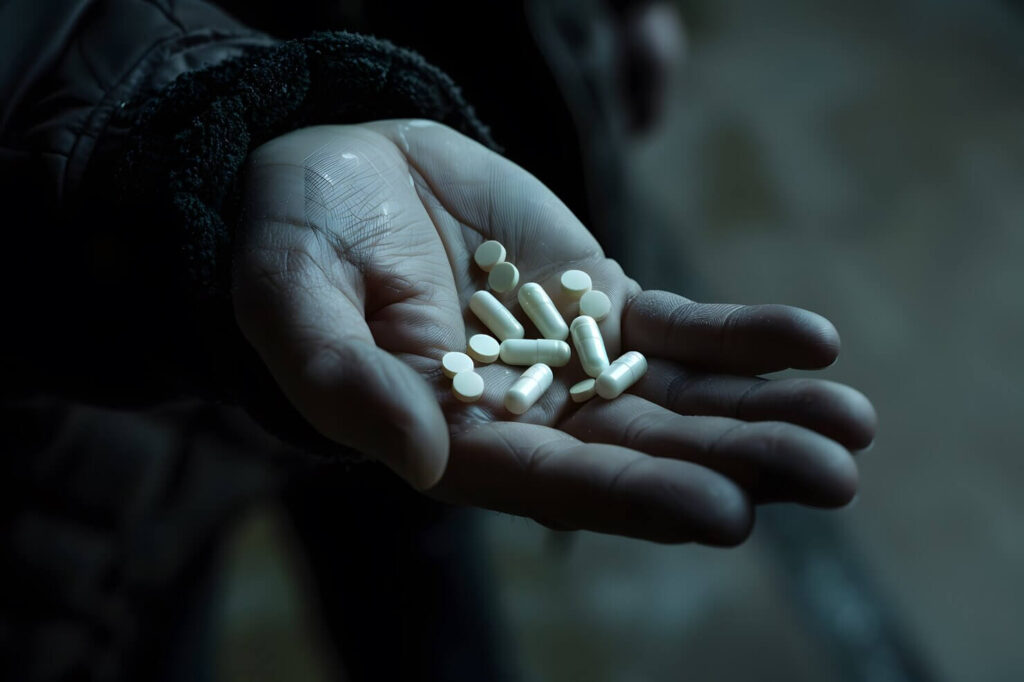When someone you care about is dealing with drug addiction, it doesn’t just affect them, it affects you, too. You might be feeling anxious, stressed, or even confused about what’s happening. Maybe money’s getting tight, or it feels like your family isn’t as close as it used to be.
The thing is, addiction changes the way a person thinks and acts, which is why it can cause so much pain for the whole family. Whether it’s drugs, alcohol, or any other substance, substance use can turn everything upside down and make daily life feel like a constant struggle.
In this post, we’ll discuss the emotional, psychological, and financial impact of addiction in the family and how seeking professional help in rehab can help your loved one, and yourself, get through this difficult phase.
Table of Contents
ToggleEmotional and Psychological Impact of Substance Use Disorder on Family Members
The disease of addiction can make people feel like they’re all drifting apart, even when they’re right next to each other.
The emotions that come with this can be really overwhelming. You might notice feelings like:
- Worry: Always be scared about what could happen next or how your loved one is doing.
- Sadness: Feeling down because it seems like no matter what you do, nothing changes.
- Anger: Being mad at the person with the addiction, or even mad at yourself for not knowing how to help.
If there are kids involved, it can be even harder. They might feel like they’re being left out, or they might not understand why their family doesn’t feel the same anymore. This can make them feel insecure and cause problems with school, making friends, or just feeling safe at home.
Over time, those feelings can turn into bigger issues, like trouble trusting others or feeling lost in their own world.
Financial and Social Consequences of Alcohol and Drug Addiction for the Entire Family

Aside from your emotions, your wallet will also take a hit. Supporting someone with an alcohol addiction can get really expensive. Money gets spent on treatment, legal issues, or even just trying to fix the problems that come with addiction.
As time goes by, it can drain your savings, make it harder to pay the bills and even leave your family in financial trouble. If the person with the addiction loses their job or can’t work, it can make things even worse because the whole family would struggle.
Addiction can also push your family away from friends and social circles. There’s often a lot of shame or judgment around addiction, and this can make you feel like you need to hide what’s happening.
It’s tough when you feel like no one understands or you’re afraid people will judge you. This isolation can leave your family feeling cut off from the support networks that you need the most during such a difficult time.
How Addiction Disrupts Family Dynamic and Roles
This shift in family dynamics and communication breakdown is one of the most painful effects of addiction on the entire family system. When someone in the family is dealing with addiction, everyone else often feels like they need to step up in new ways and take on new roles so that the chaos can be managed.
These changes might seem necessary at first, and they are, but then, they can create unhealthy patterns that hurt everyone involved.
You might find yourself taking on the role of the caretaker, always trying to fix things or make life easier for the person struggling with addiction. It can feel like you’re constantly putting their needs first.
Some family members often start enabling, which means they make excuses for the person’s behavior or cover up the substance use problem. They think they’re helping, but it can actually make the situation worse.
Others in the family, especially younger siblings, may become the scapegoat for the person with the substance abuse problems. They end up taking the blame for problems in the family, even if it’s not their fault. This can make them feel confused and hurt.
It gets harder to talk honestly with each other because the focus is always on the one person in a family with the addiction. The trust and openness that once existed in the family can start to disappear.
You’ll notice that, due to the impact of addiction within the family, you can no longer work as a unit. Instead of connecting, family members might start feeling misunderstood or left out.
Support for Families Affected by Drug and Substance Abuse

If you’re feeling lost or overwhelmed by what alcohol or drug addiction has done to your family, you should know that there is hope for better days.
One of the best ways to start healing is through family counseling and therapy. These sessions give you and your loved ones a safe place to talk about your feelings and experiences.
A trained counselor at a reputable drug and alcohol treatment center can help you understand how addiction affects your family and guide you in communicating better with one another.
It’s a chance to work through the mental health challenges that often come up, like anxiety or sadness, and to find healthier ways to cope together, as a unit, just like you used to before addiction took center stage.
Beyond therapy, there are also support groups that can really help the family member with an addiction. Groups like Al-Anon or Nar-Anon let you meet others who understand what you’re going through.
These groups provide a sense of community and share helpful tools for coping with the ups and downs of coping with a loved one’s addiction. Being part of a group like this can remind you that there are others who have already walked down this path that you’re on.
Seeing the amount of progress they have made should make you hopeful and willing to do the work needed to get to where they are.
The Path to Recovery: Healing as a Family System
Everyone who has broken the chains of addiction will tell you that it was one of the most challenging things they have ever had to do in their life, and you’d be right to believe them.
However, you or your loved one in question has what they probably never had: the support of a family environment. There is no force greater than a family, working together as a family unit to help their parent, child sibling, or even each other break the cycle of addiction.
Here are some steps you can take to motivate them to seek treatment and provide support throughout their recovery journey from their nature of addiction:
- Open Up a Conversation: Start by gently talking about your concerns. Let them know that you care about their well-being. Use “I” statements, like “I feel worried about you,” to express your feelings without sounding accusatory lest they feel attacked and recline.
- Educate Yourself: You can also learn about addiction and substance use disorders. When you understand how addiction affects the family, you’ll be better equipped to communicate better and show empathy.
- Encourage Professional Help: Suggest seeking help from a doctor, therapist, or support group. Sometimes, having a trusted professional involved can really help.
- Be Supportive: Let your loved one know that you’ll be there for them every step of the way. Recovery can be a long journey, and they’ll need your support and encouragement. Don’t just assume that they know. Make it a habit to mind them.
- Set Boundaries: While being supportive, it’s also important to set healthy boundaries. Make it clear what behaviors are unacceptable and stick to those boundaries to protect your own well-being.
FAQs
What are the effects of addiction on family members?
Addiction can cause stress, sadness, and anger in families. You may feel anxious about your loved one’s choices, and finances can get tight due to treatment costs. Relationships often change, and it’s common to feel isolated from friends because you’re scared of judgment.
How does addiction affect children in a family?
Children in families with addiction may feel scared or neglected. They might struggle with school, have trouble making friends, or act out. The chaos can leave them anxious and insecure, which will no doubt affect their future.
What is codependency, and how is it linked to addiction?
Codependency happens when you focus on helping someone else at your own expense. In addition, you might feel responsible for fixing your loved one’s problems. This can drain you and make things worse.
How can families support a loved one with addiction?
Support starts with understanding addiction. Encourage your loved one to get professional help and let them know you care. Set healthy boundaries to protect yourself while still being supportive.
Can families recover from the effects of addiction?
Yes, families can recover from addiction’s impact. Open communication is key to this. Talking about feelings helps rebuild trust. And then seeking therapy can guide you through healing together. With all of this, you can definitely come out stronger as a family.
Harmony Junction Recovery is Here to Help Eradicate the Negative Consequences of the Addiction Problem
Addiction in your family can feel like a heavyweight. You might be feeling confused, angry, or scared, wondering how to make things better.
At Harmony Junction Recovery, we understand what you’re going through because we’ve helped many families just like yours.
Our team is here to support you and your loved ones. We know alcohol and substance abuse affects everyone in the family, not just the person struggling with it. That’s why we offer addiction treatment programs designed for families, so you can learn how to heal together.
You’ll find a safe space to talk about your feelings, share your experiences, and get the help you need to start rebuilding trust and communication.
Call us now at +1 888-991-5988 or fill out our contact form on our website. We’re available all around the talk, so you can expect a response as soon as you reach out. Take the first step to a healthy future – get in touch with us today!
Clint earned a Master of Science in Clinical Psychology in 2012. With 5 years in drug and alcohol treatment and 8 years in private practice, he specializes in helping clients uncover obstacles to living their envisioned life. Leveraging his experience, Clint supports clients in finding the motivation to make meaningful life changes.
Follow him on: Linkedin
Get support : Clint Website
